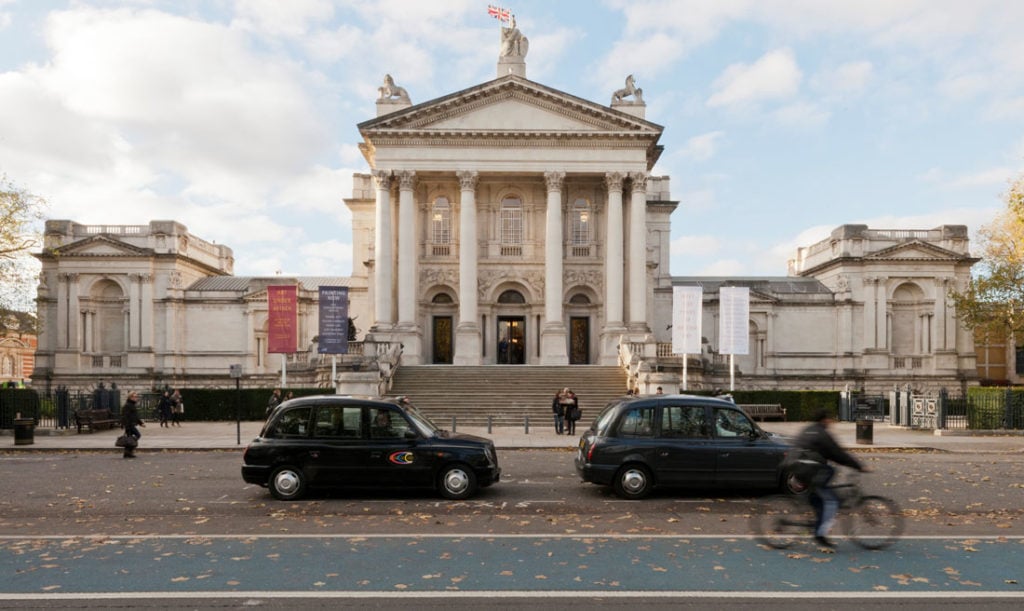Art World
This Year’s Turner Prize Has Been Called Off, With UK’s Top Art Award Instead to Be Split Between Several Artists (Again)
Citing global disruption, the 2020 exhibition has been canceled and replaced by individual bursaries.

Citing global disruption, the 2020 exhibition has been canceled and replaced by individual bursaries.

Naomi Rea

In a growing trend towards more equitable prize-giving, Tate Britain has announced that it will be splitting a £100,000 ($123,000) fund for the prestigious Turner Prize among 10 jury-selected artists while canceling the planned exhibition. The move has been made in response to the difficulties artists are facing due to the impact of the public health situation, and echoes last year’s surprise announcement that the award would be shared by all four of the finalists.
This year, instead of the traditional exhibition of four finalists the Turner Prize jury will choose 10 artists to receive one-off bursaries of £10,000 ($12,300), a significant boost from the £45,000 ($55,413) pot that has historically been split between the winner, who receives £25,000 ($30,777), while the three short-listed artists are handed £5,000 ($6,160) each. The new awards have been funded by a group of Tate’s supporters.
Tate Britain explains in a statement that the timeline for preparing the annual show was too tight due to the disruptions caused by the public health situation, so it decided to support a larger number of artists through the “period of profound disruption and uncertainty.” The selected artists will be announced at the end of June.
“Gallery closures and social distancing measures are vitally important, but they are also causing huge disruption to the lives and livelihoods of artists,” Tate Britain director and jury chair Alex Farquharson says in a statement. “The practicalities of organizing a Turner Prize exhibition are impossible in the current circumstances, so we have decided to help support even more artists during this exceptionally difficult time.”
Farquharson draws a parallel with the prize’s namesake artist JMW Turner who “once planned to leave his fortune to support artists in their hour of need.” In his will, Turner tried to leave most of his extensive fortune to a charity for “decayed artists,” although for legal reasons, this plan never materialized.
The jury for this year’s Turner Prize includes Richard Birkett, curator at large at the Institute of Contemporary Arts; Sarah Munro, director of BALTIC Centre for Contemporary Art; Fatoş Üstek, director of Liverpool Biennial; and designer and curator Duro Olowu. They have been scouring exhibitions for the past year to spot artists worthy of nomination ahead of the June short-list announcement. The statement says that the prize will return in 2021, but it is unclear whether it will return to its traditional format.
The reformatted 2020 edition is in keeping with a recent trend of prestigious art prizes recognizing the difference that smaller awards can make to a greater number of artists. In April, the organizers of Canada’s prestigious Sobey Art Award decided to split the prize between all 25 long-listed artists, awarding each CAD$25,000. They also cited the “extraordinary circumstances” provoked by the health situation. It remains to be seen how many more prizes will follow suit.
Last year, the four finalists of the 2019 Turner Prize made a surprise announcement that they would split the prestigious award equally between them. Though this announcement came before the new challenges presented by the ongoing global health crisis, the jury recognized an already difficult social and political climate faced by artists, explaining the move at the time as a “bold statement of solidarity and collaboration in these divided times.”